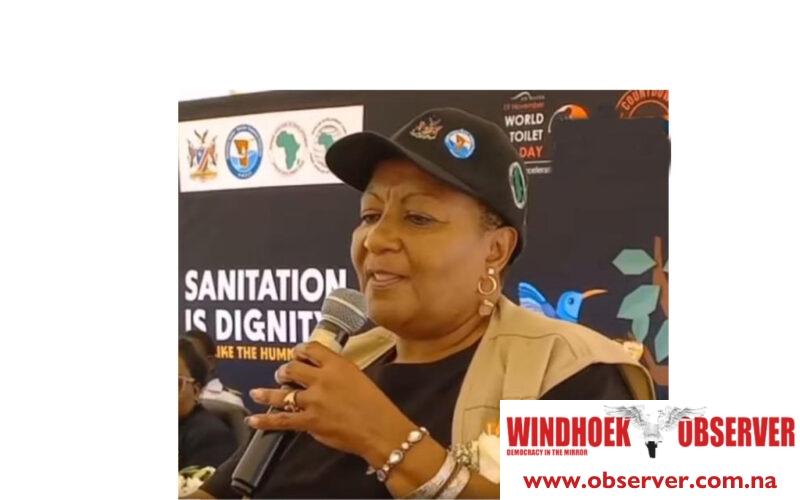Niël Terblanché
The community of the DRC informal settlement in Swakopmund has for the first time in the history of Namibia, participated in celebrating World Toilet Day.
This celebration signifies a leap towards achieving sanitary standards that align with global norms.
Dr Esther Utjiua Muinjangue, the Deputy Minister of Health and Social Services, represented Dr Kalumbi Shangula at the official launch of the occasion.
Dr. Muinjangue stressed that World Toilet Day is an annual United Nations Observance, which promotes global awareness and action to address the sanitation crisis affecting over 2.5 billion people worldwide.
“For too long, sanitation and toilets have been subjects shrouded in silence, often considered taboo. However, today, with more than 2.5 billion people lacking access to improved sanitation, there is a pressing need to change this reality and break the cycle of diseases. The aim of World Toilet Day is to mobilize efforts at the global, national, and community levels to enhance hygiene, shift social norms, and eliminate open defecation by 2030,” she said.
Dr Muinjangue pointed out that the world is currently off track to meet the Sustainable Development Goal (SDG 6), which calls for safe toilets and water for all by 2030.
“Therefore, World Toilet Day 2023 is focused on taking faster actions to get the world back on track and hold governments and institutions accountable for delivering on their promises,” she added.
Namibia has faced challenges, including the outbreak of Hepatitis E, which pointed to the importance of hygiene.
Dr. Muinjangue stressed the need for all stakeholders to collaborate in ensuring safe toilets and water usage to accelerate progress toward achieving SDG 6.
According to the District Health Information System 2, the Erongo Region reported 1334 cases of Diarrhoea with blood and four deaths between October 2022 and October 2023, stressing the urgency of addressing water, sanitation, and hygiene issues.
The Deputy Minister emphasized that using toilets, and washing hands with soap and running water is the most effective and cost-efficient way to prevent diseases, particularly among children under five.
She expressed confidence in the Namibia Water and Sanitation Sector Program (NWSSP) and other development partners’ ability to find solutions to achieve access to adequate sanitation and hygiene for all in Namibia by 2030.
Neville Andre, the Governor of the Erongo Region stressed the importance of collaboration and community efforts in tackling the global sanitation predicament.
He noted that approximately 3.5 billion people worldwide lack access to safe toilets, and open defecation remains a significant challenge, particularly in Namibia.
Mayor Dina Namubes of Swakopmund recognized the fundamental human right to sanitation and the necessity of raising awareness about the global sanitation crisis.
She pointed out that inadequate sanitation contributes to the spread of diseases and hinders economic and educational opportunities, especially for women and girls.
She said that in order to address these challenges, the local authority has provided toilets and sanitation facilities to the DRC community, underlining the importance of governments, NGOs, businesses, and individuals working together to ensure that everyone has access to dignified sanitation facilities.
As the community celebrated World Toilet Day for the first time in Namibia, the event served as a call to action, emphasizing the collective power to make a difference in the lives of those still lacking access to proper sanitation.
The goal is to build a world where every person can enjoy dignity and health through access to proper sanitation, ultimately turning the tide on the global sanitation crisis.




